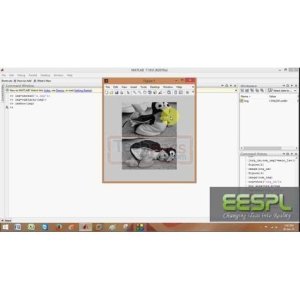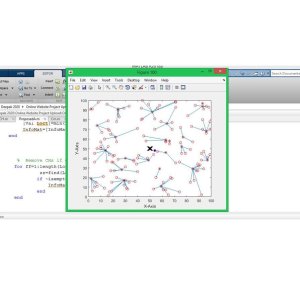Energy Optimization in Wireless Networks through Mobile Charging Node and Bat Optimization Algorithm
Problem Definition
Excessive energy consumption in wireless networks is a significant issue that can drastically impact the longevity and efficiency of the network. When nodes within a network dip below a certain energy threshold, they tend to drain out quickly, leading to premature network failure. This problem not only decreases the overall lifespan of the network but also affects its performance and reliability. The constant need for recharging or replacing nodes can be time-consuming and costly, making it essential to find a solution to optimize energy consumption in wireless networks. Through a thorough literature review, it is evident that current solutions are inadequate in addressing this problem effectively, highlighting the urgent need for innovative approaches to ensure sustainable and efficient wireless networks.
The limitations and challenges stemming from excessive energy consumption in wireless networks are clear, emphasizing the importance of developing solutions to mitigate these issues.
Objective
The objective of this research is to develop an energy-efficient protocol and optimized algorithm to minimize excessive energy consumption in wireless networks. This will involve implementing a mobile wireless charging node to provide energy to nodes below a certain threshold, ultimately extending the network's lifespan. The proposed approach also includes deploying an optimization algorithm to streamline energy usage and creating two scenarios to test the efficacy of the protocol and algorithm. The goal is to address the limitations and challenges of excessive energy consumption in wireless networks and develop innovative solutions for sustainable and efficient network operation.
Proposed Work
The primary focus of this research is to address the issue of excessive energy consumption in wireless networks, which can significantly reduce the network's lifespan by causing nodes to drain out prematurely. To tackle this problem, the project aims to introduce an energy-efficient protocol and an optimized algorithm that can minimize energy consumption in wireless networks. By employing a mobile wireless charging node to provide energy to nodes below a specific threshold, the goal is to extend the network's lifetime. The proposed approach involves implementing the optimization algorithm to streamline energy usage and developing two scenarios to test the efficacy of the protocol and algorithm.
The proposed solution involves the deployment of a mobile wireless charging node to replenish energy to nodes with low energy levels, ultimately enhancing the network's overall lifespan.
In addition to the mobile charging node, an optimization algorithm is incorporated to optimize energy consumption in the network. Two scenarios are created to evaluate the effectiveness of the proposed protocol and algorithm, with one scenario extending the parameters of clustered selection and the other utilizing a bat optimization algorithm for optimal clustered selection. The comparison against a base paper demonstrates the efficiency of the proposed solution in minimizing energy consumption and extending the network's longevity. The use of MATLAB software facilitates the implementation and testing of the proposed protocol and algorithm.
Application Area for Industry
This project can be applied in various industrial sectors where wireless networks are utilized, such as telecommunications, Internet of Things (IoT), smart cities, industrial automation, and transportation systems. One of the critical challenges faced by industries in these sectors is the high energy consumption of wireless networks, leading to the premature depletion of node energy and a decrease in network lifespan. By introducing a mobile wireless charging node and implementing an optimization algorithm, this project offers a solution to extend the network's overall life expectancy. The mobile wireless charging node serves to recharge nodes below a specific energy threshold, ensuring continuous operation and longevity of the network. The optimization algorithm helps in optimizing energy consumption, improving network efficiency, and reducing costs associated with frequent node replacements.
The proposed solutions can benefit industries by enhancing the reliability and sustainability of their wireless networks, ultimately leading to improved operational efficiency and cost savings.
Application Area for Academics
The proposed project on addressing excessive energy consumption in wireless networks can significantly enrich academic research, education, and training in the field of wireless communication systems. By introducing a novel mobile wireless charging node and implementing an optimization algorithm, researchers and students can explore innovative ways to extend the lifespan of wireless networks while minimizing energy consumption.
The relevance of this project lies in its potential applications for conducting research on energy-efficient communication protocols and network optimization strategies. This project provides a practical solution to a critical issue in wireless networks, opening up avenues for further exploration and experimentation in improving network performance and sustainability.
Researchers, MTech students, and PhD scholars in the field of wireless communication systems can benefit from the code and literature of this project for their academic work.
The Matlab programming language, along with the bat optimization algorithm, offers a valuable tool for studying and implementing energy-efficient solutions in wireless networks. By leveraging the insights and methodologies from this project, researchers can advance their research and develop new techniques for optimizing network performance.
In terms of future scope, this project has the potential to be extended to cover other aspects of wireless communication systems, such as network security, resource allocation, and quality of service optimization. By incorporating additional technologies and research domains, this project can serve as a foundation for exploring a wide range of innovative research methods, simulations, and data analysis techniques in educational settings.
Algorithms Used
The research utilized a bat optimization algorithm for the selection of optimal clusters, enhancing energy preservation in the wireless network. The Matlab program was used to design the implementation and testing codes. The proposed solution introduces a mobile wireless charging node to increase the network's overall life expectancy. An optimization algorithm was implanted to streamline energy consumption, with two scenarios developed to test effectiveness.
Keywords
SEO-optimized keywords: Wireless networks, Energy-efficient Protocol, Optimization Algorithm, Mobile Wireless Charging Node, Energy consumption, Clustered Selection, BAT Optimization Algorithm, MATLAB, Network Lifetime, Dead Nodes, Live Nodes.
SEO Tags
Problem Definition, Excessive Energy Consumption, Wireless Networks, Network Longevity, Premature Death of Nodes, Energy Threshold, Network Lifespan, Energy Conservation, Wireless Network Efficiency, Energy Drainage, Optimal Energy Consumption Proposed Work, Mobile Wireless Charging Node, Energy Provision, Network Life Expectancy, Optimization Algorithm, Clustered Selection Parameters, Bat Optimization Algorithm, Comparison Study, Effective Solution, Energy Revitalization Software Used, MATLAB Reference Keywords, Wireless Networks, Energy Efficient Protocol, Advanced Optimization Approach, Energy Consumption, Mobile Wireless Charging Node, Clustered Selection, BAT Optimization Algorithm, MATLAB, Network Lifetime, Dead Nodes, Live Nodes, Network Lifespan
| Shipping Cost |
|
No reviews found!



















































No comments found for this product. Be the first to comment!